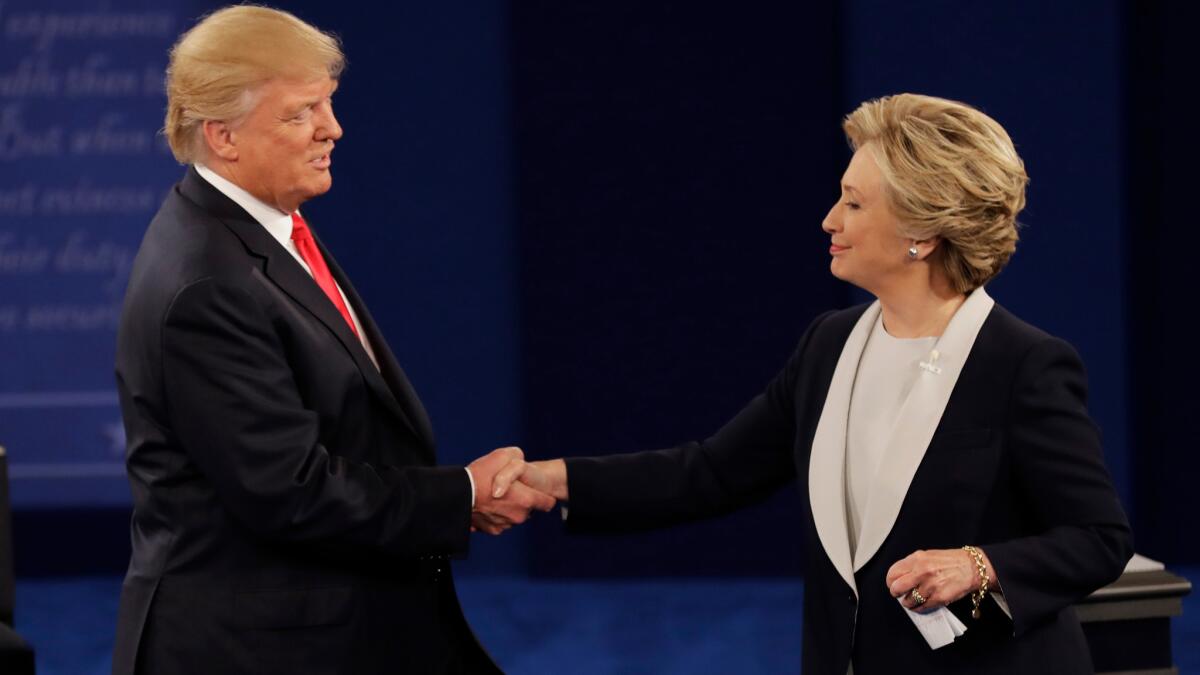There’s one tax break Hillary Clinton and Donald Trump agree about

A rare moment of agreement in Sunday’s town-hall debate came when Hillary Clinton and Donald Trump talked about managers at hedge funds and private equity firms, who enjoy a reduced tax rate on much of their income.
These managers are typically paid both a flat fee along with a share of any profits they earn on behalf of their investors. The fee is taxed at the same rate everyone else pays on their salary, a marginal rate of 39.6%, but managers’ share of the fund’s profits — known as carried interest — is taxed at a reduced rate of up to 23.8%.
That is because managers can claim their carried interest as capital gains, or earnings on an investment, rather than ordinary income. Capital gains are taxed at a favorable rate to encourage Americans to save money, which benefits the economy overall.
Opponents argue that the managers at these firms are not investing or saving money in the typical sense. Managing money is their job, and the compensation they get for doing it has more in common with a wage or a salary than a gain on an investment.
Both candidates have called for taxing carried interest as ordinary income, which the nonpartisan Congressional Budget Office has estimated would bring in about $17 billion over a decade in additional revenue.
“One thing I’d do is get rid of carried interest,” Trump said Sunday in response to a question from the audience about whether wealthy Americans are paying their fair share.
Trump then wrongly said that Clinton did not agree with him. Clinton has also supported taxing carried interest at the ordinary rate since 2007, when she began her first campaign for president. If elected, Clinton recently said she would direct the Treasury Department to issue new rules to change how carried interest is taxed and that she would not need Congress’s approval to make the change.
“I’ve been in favor of getting rid of carried interest for years,” Clinton said Sunday.
“Why didn’t you do it? Why didn’t you do it?” Trump interjected.
“Because I was a senator with a Republican president,” Clinton replied, referring to her service in the Senate during President George W. Bush’s administration.
Trump might have been referring to the fact that when Democrats had control of Congress in the first years of the Obama administration, they did not eliminate this privilege, even though President Obama had said he would do so on the stump. Clinton was secretary of State at the time.
Aside from carried interest, Trump has said he would substantially reduce taxes on wealthy American households.
He has said he would reduce the uppermost marginal rate on ordinary income to 33%, substantially reduce taxes on corporations and eliminate the estate tax. These measures would primarily benefit the rich, and the Tax Foundation has estimated that the incomes of the wealthiest 1% of households could increase by as much as 16% on average, before taking into account the broader effects on the economy.
By contrast, Clinton has proposed new taxes on the wealthy, including increased taxes on capital gains and estates. Her proposals would reduce the average income among the richest 1% by about 5.2%, or a little less than $120,000 a year, according to the Tax Policy Center.
Ehrenfreund writes for the Washington Post.
ALSO
Trail Guide: See the latest about the 2016 campaign
Second Clinton-Trump presidential debate draws 66.5 million viewers
Millennials aren’t big spenders or risk-takers, and that’ll reshape the economy
More to Read
Inside the business of entertainment
The Wide Shot brings you news, analysis and insights on everything from streaming wars to production — and what it all means for the future.
You may occasionally receive promotional content from the Los Angeles Times.










